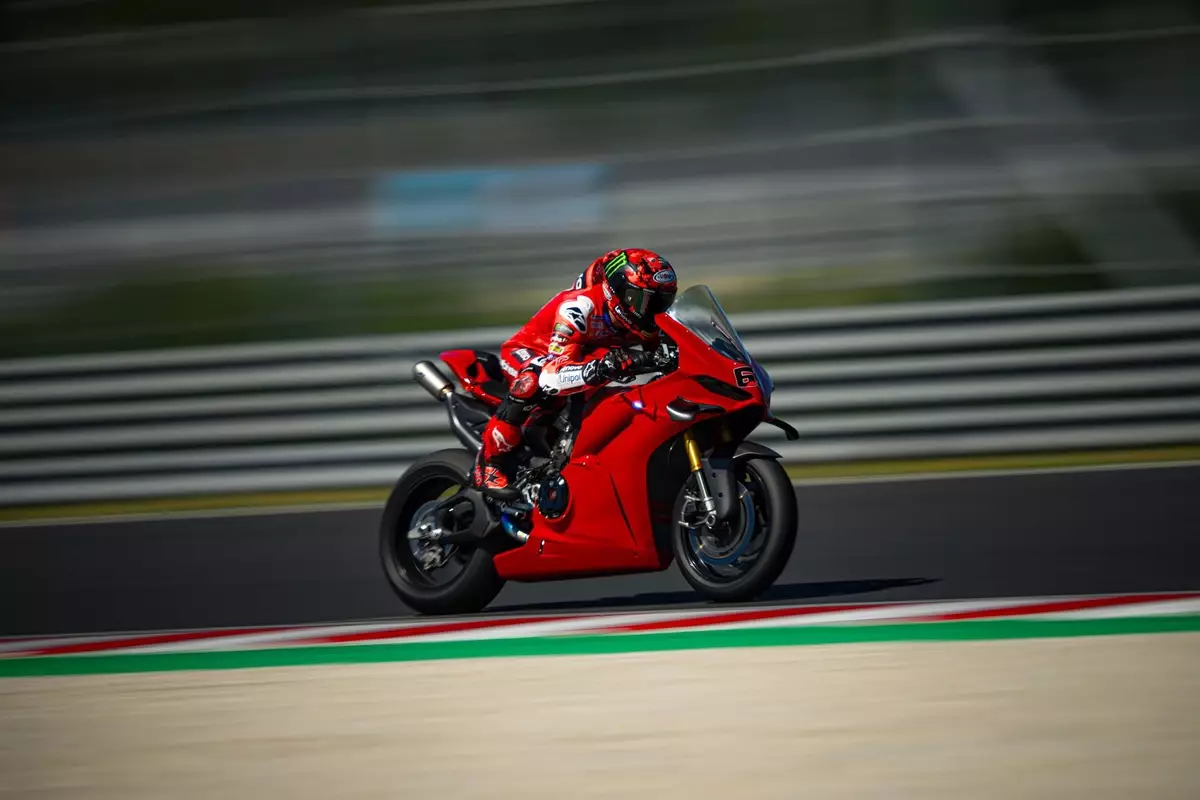Ducati’s recent decision to send seven of its top-tier MotoGP riders to Hungary illustrates a bold and calculated approach toward maintaining dominance in the sport. This private testing session at Balaton Park was not merely an act of routine practice; it was a deliberate strategic move aimed at mastering an entirely new circuit that will debut on the MotoGP calendar later this month. Such foresight highlights Ducati’s unwavering commitment to competitive excellence, emphasizing that even with a commanding lead across riders’, teams’, and constructors’ championships, the Italian manufacturer refuses to settle for complacency. Instead, the company invests heavily in meticulous preparation, recognizing that every seemingly minor detail, from the asphalt’s condition to the bike’s setup, can influence race outcomes in a sport defined by fractions of a second.
This preparatory approach reveals an underlying philosophy: success in MotoGP is less about luck and more about relentless innovation, deliberate experimentation, and adaptability. Ducati’s decision to conduct this track-specific test with its riders—focusing on a variety of adjustments such as brakes and suspension—underscores an understanding that the nuances of a new circuit can unlock critical insights. It demonstrates that Ducati believes in precision, that their dominance correlates directly with their preparedness, and that the margin for error is razor-thin.
Strategic Use of High-Performance Prototypes
Equipping each rider with the Ducati Panigale V4 S Pro, a top-tier street bike derived from Ducati’s WorldSBK machine, signifies more than just technical curiosity. It points to a calculated transfer of technological prowess from their racing division to pre-race practice. The Panigale V4 S Pro, with its sophisticated design and race-ready features, serves as an ideal platform for testing circuit-specific setups and rider responses. Modifications made by Ducati’s technicians, rooted within the boundaries of racing regulations, reflect a deeply strategic mindset: these tweaks optimize performance without crossing regulatory lines, enabling riders to simulate race conditions in a controlled environment.
By selecting a model that closely mirrors their premier racing bikes, Ducati ensures that data collected during these private sessions will be directly translatable to MotoGP performance. This is a strategic investment of resources meant to shave precious tenths of a second and refine rider familiarity with the circuit. Ducati’s emphasis on detailed testing showcases their ethos—professional racing is as much about engineering precision as it is about raw rider talent.
The Psychological Edge of Private Testing
Beyond technical preparation, Ducati’s testing at Balaton Park provides riders with crucial psychological advantages. In competitive sports, familiarity breeds confidence. The early exposure to the circuit, combined with high-quality practice in ideal conditions, allows riders to build mental maps of the track, identify challenging sections, and fine-tune their riding styles. The presence of seasoned racers like Marc Marquez and Francesco Bagnaia, alongside development riders, signals their collective dedication to understanding every aspect of the upcoming race.
Marquez’s enthusiasm and comment about the circuit’s uniqueness are telling. His emphasis on adapting to the “stop-and-go” nature of Balaton highlights a vital aspect of racing: not all tracks favor brute speed; many demand finesse, rhythm, and precise control. Gaining these insights during private testing phases allows riders to approach the race with a mental edge—less uncertainty, more confidence—that often proves decisive in tight competitions.
The Significance of the Hungarian GP’s Return
The return of the Hungarian Grand Prix after a 33-year hiatus is more than a mere scheduling update; it symbolizes a rekindling of Hungary’s rich motorsport history and a challenge for teams to adapt quickly to a new environment. The last edition, held at Hungaroring, marked a different kind of challenge—tight, technical, and demanding precision. Balaton Park’s inclusion on the calendar offers a new set of variables, a fresh arena to test Ducati’s adaptability and resilience.
This race’s significance extends beyond the sporting realm—it’s about Ducati asserting their technical superiority and strategic foresight in unfamiliar territory. The recent private testing, in this context, isn’t just about personal comfort; it’s a calculated effort to establish early dominance at a circuit that could redefine the championship dynamics. Ducati’s proactive stance, taking control of their preparation, underscores an understanding that in high-stakes racing, being a step ahead often translates into championship gold.
Ducati’s meticulous and proactive approach to the Balaton Park circuit exemplifies their relentless pursuit of excellence. Far from resting on their laurels despite dominating the championship standings, they demonstrate strategic foresight, technical innovation, and mental readiness. Their investment in bespoke testing, rider-specific setups, and understanding of a brand-new track underscores a fundamental truth in competitive racing: victory belongs to those willing to prepare smarter, think ahead, and adapt swiftly. Ducati’s actions at Balaton Park reinforce their reputation not just as a manufacturer of high-performance machines but as strategic maestros, shaping the future of MotoGP at every turn.


Leave a Reply